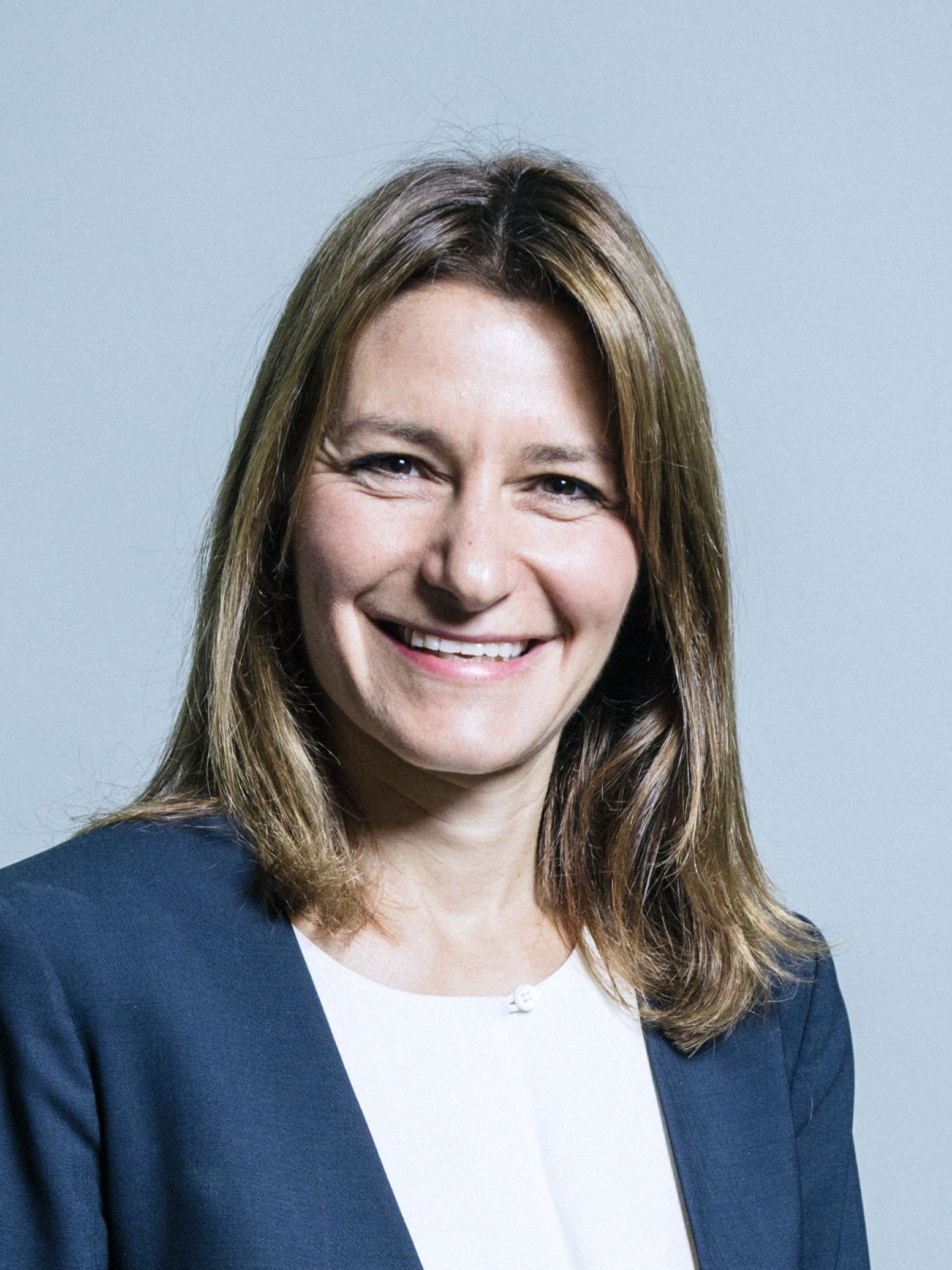Department for Digital, Culture, Media & Sport
The Department for Culture, Media and Sport will focus on supporting culture, arts, media, sport, tourism and civil society across every part of England — recognising the UK’s world-leading position in these areas and the importance of these sectors in contributing so much to our economy, way of life and our reputation around the world.
Shadow Ministers / Spokeperson
Democratic Unionist Party
Ian Paisley (DUP - North Antrim)Shadow DUP Spokesperson (Culture, Media and Sport)
Scottish National Party
John Nicolson (SNP - Ochil and South Perthshire)Shadow SNP Spokesperson (Digital, Culture, Media and Sport)
Liberal Democrat
Baroness Bonham-Carter of Yarnbury (LD - Life peer)Liberal Democrat Lords Spokesperson (Culture, Media and Sport)
Jamie Stone (LD - Caithness, Sutherland and Easter Ross)
Liberal Democrat Spokesperson (Digital, Culture, Media and Sport)
Labour
Lord Bassam of Brighton (Lab - Life peer)Shadow Spokesperson (Culture, Media and Sport)
Thangam Debbonaire (Lab - Bristol West)
Shadow Secretary of State for Digital, Culture, Media and Sport
Baroness Thornton (Lab - Life peer)
Shadow Spokesperson (Culture, Media and Sport)
Junior Shadow Ministers / Deputy Spokesperson
Labour
Stephanie Peacock (Lab - Barnsley East)Shadow Minister (Digital, Culture, Media and Sport)
Barbara Keeley (Lab - Worsley and Eccles South)
Shadow Minister (Culture, Media and Sport)
Lilian Greenwood (Lab - Nottingham South)
Shadow Minister (Culture, Media and Sport)
Ministers of State
Julia Lopez (Con - Hornchurch and Upminster)Minister of State (Department for Culture, Media and Sport)
Parliamentary Under-Secretaries of State
Stuart Andrew (Con - Pudsey)Parliamentary Under Secretary of State (Department for Culture, Media and Sport)
Lord Parkinson of Whitley Bay (Con - Life peer)
Parliamentary Under Secretary of State (Department for Culture, Media and Sport)
Legislation - Main Chamber
Media Bill - committee stage
View calendar
Legislation - Main Chamber
Media Bill - committee stage (day 2)
View calendar
Legislation - Main Chamber
Media Bill - committee stage (day 3)
View calendar
09:30
Oral questions - Main Chamber
23 May 2024, 9:30 a.m.
Culture, Media and Sport (including Topical Questions)
Save to Calendar
View calendar
09:30
Oral questions - Main Chamber
4 Jul 2024, 9:30 a.m.
Culture, Media and Sport (including Topical Questions)
Save to Calendar
View calendar
11:00
Oral Evidence
Last year, the UK experienced a net loss of 125 grassroots music venues (GMVs) across the UK, equivalent to over …
To ask the Secretary of State for Culture, Media and Sport, how many staff have left the Charity Commission in …
This Order brings into force on 13th February 2023 a variation of the Public Lending Right Scheme 1982 (“the Scheme”) …
A Bill to make provision for the regulation of the processing of information relating to identified or identifiable living individuals; …
19:41
News and Communications
Department for Digital, Culture, Media & Sport Commons Appearances
Oral Answers to Questions is a regularly scheduled appearance where the Secretary of State and junior minister will answer at the Dispatch Box questions from backbench MPs
Other Commons Chamber appearances can be:- Urgent Questions where the Speaker has selected a question to which a Minister must reply that day
- Adjornment Debates a 30 minute debate attended by a Minister that concludes the day in Parliament.
- Oral Statements informing the Commons of a significant development, where backbench MP's can then question the Minister making the statement.
Westminster Hall debates are performed in response to backbench MPs or e-petitions asking for a Minister to address a detailed issue
Written Statements are made when a current event is not sufficiently significant to require an Oral Statement, but the House is required to be informed.
Most Recent Commons Appearances by Category
Bills currently before Parliament
Department for Digital, Culture, Media & Sport does not have Bills currently before Parliament
Acts of Parliament created in the 2019 Parliament
A Bill to make provision for and in connection with the regulation by OFCOM of certain internet services; for and in connection with communications offences; and for connected purposes
This Bill received Royal Assent on 26th October 2023 and was enacted into law.
A Bill to make provision about the security of internet-connectable products and products capable of connecting to such products; to make provision about electronic communications infrastructure; and for connected purposes.
This Bill received Royal Assent on 6th December 2022 and was enacted into law.
A Bill to amend the Charities Act 2011 and the Universities and College Estates Act 1925; and for connected purposes
This Bill received Royal Assent on 24th February 2022 and was enacted into law.
A Bill to make provision for and in connection with an expanded dormant assets scheme; to confer power to further expand the scope of that scheme; to amend the Dormant Bank and Building Society Accounts Act 2008; to enable an authorised reclaim fund to accept transfers of certain unwanted assets; and for connected purposes
This Bill received Royal Assent on 24th February 2022 and was enacted into law.
A Bill to make provision about the security of public electronic communications networks and public electronic communications services.
This Bill received Royal Assent on 17th November 2021 and was enacted into law.
A Bill to amend the electronic communications code set out in Schedule 3A to the Communications Act 2003; and for connected purposes.
This Bill received Royal Assent on 15th March 2021 and was enacted into law.
A bill to make provision about the Commonwealth Games that are to be held principally in Birmingham in 2022; and for connected purposes
This Bill received Royal Assent on 25th June 2020 and was enacted into law.
Department for Digital, Culture, Media & Sport - Secondary Legislation
Petitions
e-Petitions are administered by Parliament and allow members of the public to express support for a particular issue.
If an e-petition reaches 10,000 signatures the Government will issue a written response.
If an e-petition reaches 100,000 signatures the petition becomes eligible for a Parliamentary debate (usually Monday 4.30pm in Westminster Hall).
(18 in the last 7 days)
(17 in the last 7 days)
(18 in the last 7 days)
(17 in the last 7 days)
Petition Closed
Make verified ID a requirement for opening a social media account.
Gov Responded - 5 May 2021 Debated on - 28 Feb 2022closed 2 years, 8 months ago
Make it a legal requirement when opening a new social media account, to provide a verified form of ID. Where the account belongs to a person under the age of 18 verify the account with the ID of a parent/guardian, to prevent anonymised harmful activity, providing traceability if an offence occurs.
Petition Closed
Prevent gyms closing due to a spike in Covid 19 cases
Gov Responded - 28 Oct 2020 Debated on - 23 Nov 2020closed 3 years, 2 months ago
In the event of a spike we would like you not to close gyms as a measure to stop any spread of Covid. Also for gyms to not be put in the same group as pubs in terms of risk or importance. Gyms are following strict guidelines and most members are following rules in a sober manner.
Petition Closed
Open gyms first as we come out of lockdown & fund a Work Out to Help Out scheme
Gov Responded - 16 Mar 2021 Debated on - 22 Mar 2021closed 2 years, 9 months ago
We want the government to recognise the importance of gyms, health clubs, leisure centres and swimming pools in empowering people to look after their health and stay fit and for them to open first as we come out of lockdown.
We're also calling for government to fund a Work Out to Help Out scheme.
Departmental Select Committee
Culture, Media and Sport Committee
Commons Select Committees are a formally established cross-party group of backbench MPs tasked with holding a Government department to account.
At any time there will be number of ongoing investigations into the work of the Department, or issues which fall within the oversight of the Department. Witnesses can be summoned from within the Government and outside to assist in these inquiries.
Select Committee findings are reported to the Commons, printed, and published on the Parliament website. The government then usually has 60 days to reply to the committee's recommendations.
12 Members of the Culture, Media and Sport Committee

Culture, Media and Sport Committee Member since 2nd March 2020

Culture, Media and Sport Committee Member since 2nd March 2020

Culture, Media and Sport Committee Member since 2nd March 2020

Culture, Media and Sport Committee Member since 2nd March 2020

Culture, Media and Sport Committee Member since 2nd March 2020

Culture, Media and Sport Committee Member since 2nd March 2020

Culture, Media and Sport Committee Member since 2nd March 2020

Culture, Media and Sport Committee Member since 19th October 2021

Culture, Media and Sport Committee Member since 19th October 2021

Culture, Media and Sport Committee Member since 7th March 2022

Culture, Media and Sport Committee Member since 17th May 2023

Culture, Media and Sport Committee Member since 15th January 2024
Culture, Media and Sport Committee: 7 Current Inquiries
Culture, Media and Sport Committee: Previous Inquiries
50 most recent Written Questions
(View all written questions)Ministers and officials have regular discussions with Ofcom on a range of issues. Ofcom’s Broadcasting Code sets out rules to ensure that broadcast news is reported with due accuracy and presented with due impartiality. The Government is committed to a free and independent media and does not interfere with Ofcom's regulatory or operational decisions, including how broadcast content is regulated.
Minister of State (Department for Science, Innovation and Technology)
Patricia Gibson
(Scottish National Party - North Ayrshire and Arran)
Ministers and officials have regular discussions with Ofcom on a range of issues. Ofcom’s Broadcasting Code sets out rules to ensure that broadcast news is reported with due accuracy and presented with due impartiality. The Government is committed to a free and independent media and does not interfere with Ofcom's regulatory or operational decisions, including how broadcast content is regulated.
Minister of State (Department for Science, Innovation and Technology)
I was sorry to learn about the closure of the British Youth Council and want to express gratitude for its work over the years. Whilst the British Youth Council has closed, we will continue to support the UK Youth Parliament as the national programme for democratic participation at the Local Authority Level. In addition, Local Authorities have a Statutory Duty to consult with young people in the planning and delivery of local youth services.
Parliamentary Under Secretary of State (Department for Culture, Media and Sport)
I was sorry to learn about the closure of the British Youth Council and want to express gratitude for its work over the years. Whilst the British Youth Council has closed, we will continue to support the UK Youth Parliament as the national programme for democratic participation at the Local Authority Level. In addition, Local Authorities have a Statutory Duty to consult with young people in the planning and delivery of local youth services.
Parliamentary Under Secretary of State (Department for Culture, Media and Sport)
His Majesty’s Government recognises that, while millions of people gamble without experiencing problems, for some it becomes an addiction with serious consequences. It is particularly important to take steps to protect those, particularly young people, who are at risk of experiencing gambling harm.
In April 2023 the Department for Culture, Media and Sport published a White Paper following our review of the Gambling Act 2005. The White Paper outlined a series of measures to tackle practices and products which can drive harm and to ensure that people who are at risk of gambling harm and addiction are protected. These include new, frictionless financial risk checks, a stake limit for online slots games, improvements to customer-led tools, and tougher restrictions on bonuses and direct marketing. These measures will be complemented by strengthened messaging about the risks associated with gambling. The White Paper also contained a commitment to introduce a new statutory levy paid by operators to fund research, prevention, and treatment. In July 2023 the Gambling Commission also published a vulnerability statement, outlining its approach to identifying, supporting, and protecting consumers who are in vulnerable situations.
We are working with the Gambling Commission and others to bring the measures from the White Paper into force as quickly as possible, and have already published consultations on a number of important proposals so that we can finalise details ahead of their implementation.
Parliamentary Under Secretary of State (Department for Culture, Media and Sport)
Flag-flying in England is subject to standard conditions set by the Government including keeping them in a safe condition and that flags are maintained in a condition that does not impair the overall visual appearance.
Statues that qualify as a building and are deemed to be of special architectural or historic interest can be protected by the Secretary of State through designation as a Listed Building.
National symbols, such as Royal Names, State Emblems, the Royal Arms and the Government Coat of Arms are already subject to guidelines.
Parliamentary Under Secretary of State (Department for Culture, Media and Sport)
The Government is committed to delivering top class sports facilities across the country, so that everyone can take part in sport and physical activity. As part of this commitment, DCMS is delivering an historic level of over £400 million in direct investment to build or upgrade thousands of grassroots sport facilities across the UK. This includes the £320 million Multi-Sport Grassroots Facilities Programme, which includes conditions on funding regarding equal access for women and girls, as well as directly delivering funding for new changing facilities.
Government’s investment also includes £25 million for the Lionesses Futures Fund for up to 30 brand new artificial pitches in England in 2024/25, with gold-standard women and girls provision that includes appropriate changing and toilet facilities.
The Football Foundation also delivers a specific funding stream for projects seeking to improve changing rooms and pavilions for all players, but especially women and girls. Further details are available on the Football Foundation’s website.
Parliamentary Under Secretary of State (Department for Culture, Media and Sport)
454 staff members have left the Charity Commission since 2014/2015. The Charity Commission publishes monthly transparency data on its workforce management which includes staffing headcount data. Additionally, yearly data on the Commission’s workforce is available online.
Parliamentary Under Secretary of State (Department for Culture, Media and Sport)
DCMS does not hold this data centrally.
Minister of State (Department for Science, Innovation and Technology)
DCMS does not hold this information. As this is an operational matter, the Member should contact the British Library directly.
Minister of State (Department for Science, Innovation and Technology)
The BBC has responsibilities set out in its Royal Charter to avoid unnecessary adverse impacts on the market, which were underscored in the Government’s recent Mid-Term Review. HM Government will continue to monitor the effectiveness of the reforms as we approach the renewal of the BBC’s Royal Charter.
The BBC is required by the Royal Charter to submit a Public Interest Test to Ofcom for review when considering making any material changes to its public service output. The Corporation is currently consulting on the Public Interest Test regarding planned new radio services.
As the BBC’s independent regulator, it will be for Ofcom to review the evidence provided and robustly to hold the BBC to account in meeting its obligations to both its audiences and the market.
Parliamentary Under Secretary of State (Department for Culture, Media and Sport)
Our data on cruise passengers do not include a breakdown of passengers by nationality. The table below shows the total number of passengers arriving in the UK on international cruises between 2018 and 2022.
Total Passenger Arrivals on International Cruises:
Year | Total Passengers (in thousands) |
2018 | 2,208 |
2019 | 2,171 |
2020 | 107 |
2021 | 181 |
2022 | 1,994 |
Parliamentary Under Secretary of State (Department for Culture, Media and Sport)
The National Archives does not hold data on the number of staff who have left the department every year since 2015.
Minister of State (Department for Science, Innovation and Technology)
The information is not held centrally.
Minister of State (Department for Science, Innovation and Technology)
The UK Government has a clear plan to grow the creative industries by a further £50 billion and support another 1 million jobs by 2030. This was set out in June 2023 in the Creative Industries Sector Vision, which was accompanied by £77 million of new funding to support the sector’s growth. This is on top of a range of tax reliefs introduced or expanded since 2010 covering film, television, animation, video games, orchestras, theatres and more.
Creative Industries GVA grew at more than twice the rate of UK GVA between 2010 and 2022 (50.3% vs 21.5%), and helped support more than a million new jobs since 2010.
Measures in the Sector Vision include the £28.4 million Create Growth Programme (CGP) to support high-growth creative businesses in twelve English regions outside London to scale up and become investment ready. The CGP is being delivered in twelve local area partnerships, including Leicester and Leicestershire Enterprise Partnership in the East Midlands.
It also includes £950k for the Creative Careers Programme, which raises young people’s awareness of creative careers and pathways by providing specialist advice and information through a range of industry-led engagement. It is delivered in regions around England, including the East Midlands (Derbyshire and Nottinghamshire, Leicester and Leicestershire and Greater Lincolnshire).
It includes £50 million announced for the second wave of the Creative Clusters Programme, designed to deliver innovation and R&D funding across the UK. This builds on the original £56 million programme initiated in 2018.
The Arts Council England 2023-2026 Investment Programme is also investing £444 million each year into arts and culture in England and is providing around £22 million per year to cultural organisations in the East Midlands, including Lincolnshire.
Minister of State (Department for Science, Innovation and Technology)
The management of competitive programmes is a matter for the relevant National Governing Body which, in this instance, is the Football Association (FA), but clearly it is incumbent on the FA and Premier League to explain this decision and why it is in the interests of fans.
We expect the FA and Premier League to consult with the English Football League (EFL) and other leagues further down the pyramid on moves such as this and reach agreements collectively.
The Secretary of State and I regularly engage with national governing bodies, and I will shortly be meeting with the FA to discuss this, alongside a range of issues.
Parliamentary Under Secretary of State (Department for Culture, Media and Sport)
DCMS does not hold data on the level of gambling-related harm for individual constituencies.
Parliamentary Under Secretary of State (Department for Culture, Media and Sport)
Fixed-odds betting terminals refer to Category B2 gaming machines. In April 2019, the maximum stakes on these machines were reduced from £100 to £2. Following this reduction in maximum stakes there has been a dramatic decrease in the number of physical B2 machines in operation. The Gambling Commission’s industry statistics indicate that from April 2020 to March 2023 there were zero Category B2 gaming machines in operation across Great Britain.
Parliamentary Under Secretary of State (Department for Culture, Media and Sport)
A total of 537 pools and lidos have opened since 2010. This figure does not include education ownership facilities such as school swimming pools. The breakdown of openings since 2010 is as follows:
2010 - 4 lidos and 70 pools
2011 - 4 lidos and 46 pools
2012 - 4 lidos and 47 pools
2013 - 3 lidos and 32 pools
2014 - 1 lidos and 26 pools
2015 - 3 lidos and 61 pools
2016 - 3 lidos and 47 pools
2017 - 0 lidos and 22 pools
2018 - 2 lidos and 32 pools
2019 - 3 lidos and 29 pools
2020 - 0 lidos and 20 pools
2021 - 0 lidos and 27 pools
2022 - 2 lidos and 37 pools
2023 - 3 lidos and 9 pools
Parliamentary Under Secretary of State (Department for Culture, Media and Sport)
His Majesty’s Government is engaging with people across the relevant sectors to develop an approach on artificial intelligence and copyright which allows this technology and the creative industries to grow in partnership. We want to work closely with right holders and AI developers to deliver this, and engage closely with our international counterparts.
The Department for Science, Innovation and Technology, The Department for Culture, Media and Sport, and the Intellectual Property Office are working collaboratively to build on the progress made through the IPO’s working group process, which has now concluded. As set out in the AI White Paper Consultation Response of 6 February, HM Government will continue to engage with the creative industries, the media sector, and AI businesses to understand their views and develop an approach that supports these sectors to thrive.
Parliamentary Under Secretary of State (Department for Culture, Media and Sport)
Following our response to the call for evidence on loot boxes in video games, HM Government has welcomed new industry-led guidance to improve protections for all players, including young people.
Measures to protect players should ensure that the purchase of loot boxes is unavailable to all children and young people unless enabled by a parent or guardian, and that all players have access to, and can be aware of, spending controls and transparent information to support safe and responsible playing of games.
We are working closely with the industry and academia to support independent scrutiny of these new measures. The Government has agreed a 12-month implementation period and has asked the industry, co-ordinated by Ukie, to report back to DCMS on the extent to which the new measures have been implemented.
We will continue to keep our position on possible future legislative options under review, informed by academic scrutiny of the industry-led guidance. We will provide a further update following the 12-month implementation period.
Parliamentary Under Secretary of State (Department for Culture, Media and Sport)
John Hayes
(Conservative - South Holland and The Deepings)
The Government-funded High Streets Heritage Action Zones programme ran from 2019 to 2024. It was administered by Historic England. The programme has funded the transformation and restoration of over 60 high streets, creating economic growth and improving quality of life in these areas.
The total grant funding awarded for programmes in Lincolnshire from 2019 to 2023 was £2,616,859. There were two programmes in Lincolnshire – in Lincoln (£1,971,279) and Grantham (£645,580).
The total grant funding for the East Midlands (excluding Lincolnshire) from 2019 to 2023 was £5,727,564. There were five programmes across the East Midlands – in Buxton (£943,972), Hinkley (£577,868), Leicester (£1,909,237), Kettering (£2,124,417), and Newark (£172,070).
Minister of State (Department for Science, Innovation and Technology)
Maintenance of grass football pitches is the responsibility of individual clubs in conjunction with the FA. Clubs that play at Step 1 to 6 of the National League System and Tiers 1 to 4 of the Women’s Football Pyramid are eligible to apply for grants through the Premier League Stadium Fund in order to make improvements to their grounds. Administration of the grants is managed by the Football Foundation.
Government is also delivering an historic level of direct investment to build or upgrade thousands of grassroots facilities across the UK. This includes £327 million to provide up to 8,000 new and improved multi-sport grassroots facilities and pitches across the whole of the UK between 2021 and 2025.
The Government recognises the logistical difficulties posed by weather-related postponements, and the consequent fixture congestion caused. This is exacerbated for clubs that have been forced to play their home fixtures at an alternative venue where the surface at their home ground is unplayable. However, the decision of whether or not to extend a football season is one that must be made by the FA as national governing body of the sport.
Parliamentary Under Secretary of State (Department for Culture, Media and Sport)
Maintenance of grass football pitches is the responsibility of individual clubs in conjunction with the FA. Clubs that play at Step 1 to 6 of the National League System and Tiers 1 to 4 of the Women’s Football Pyramid are eligible to apply for grants through the Premier League Stadium Fund in order to make improvements to their grounds. Administration of the grants is managed by the Football Foundation.
Government is also delivering an historic level of direct investment to build or upgrade thousands of grassroots facilities across the UK. This includes £327 million to provide up to 8,000 new and improved multi-sport grassroots facilities and pitches across the whole of the UK between 2021 and 2025.
The Government recognises the logistical difficulties posed by weather-related postponements, and the consequent fixture congestion caused. This is exacerbated for clubs that have been forced to play their home fixtures at an alternative venue where the surface at their home ground is unplayable. However, the decision of whether or not to extend a football season is one that must be made by the FA as national governing body of the sport.
Parliamentary Under Secretary of State (Department for Culture, Media and Sport)
Maintenance of grass football pitches is the responsibility of individual clubs in conjunction with the FA. Clubs that play at Step 1 to 6 of the National League System and Tiers 1 to 4 of the Women’s Football Pyramid are eligible to apply for grants through the Premier League Stadium Fund in order to make improvements to their grounds. Administration of the grants is managed by the Football Foundation.
Government is also delivering an historic level of direct investment to build or upgrade thousands of grassroots facilities across the UK. This includes £327 million to provide up to 8,000 new and improved multi-sport grassroots facilities and pitches across the whole of the UK between 2021 and 2025.
The Government recognises the logistical difficulties posed by weather-related postponements, and the consequent fixture congestion caused. This is exacerbated for clubs that have been forced to play their home fixtures at an alternative venue where the surface at their home ground is unplayable. However, the decision of whether or not to extend a football season is one that must be made by the FA as national governing body of the sport.
Parliamentary Under Secretary of State (Department for Culture, Media and Sport)
Maintenance of grass football pitches is the responsibility of individual clubs in conjunction with the FA. Clubs that play at Step 1 to 6 of the National League System and Tiers 1 to 4 of the Women’s Football Pyramid are eligible to apply for grants through the Premier League Stadium Fund in order to make improvements to their grounds. Administration of the grants is managed by the Football Foundation.
Government is also delivering an historic level of direct investment to build or upgrade thousands of grassroots facilities across the UK. This includes £327 million to provide up to 8,000 new and improved multi-sport grassroots facilities and pitches across the whole of the UK between 2021 and 2025.
The Government recognises the logistical difficulties posed by weather-related postponements, and the consequent fixture congestion caused. This is exacerbated for clubs that have been forced to play their home fixtures at an alternative venue where the surface at their home ground is unplayable. However, the decision of whether or not to extend a football season is one that must be made by the FA as national governing body of the sport.
Parliamentary Under Secretary of State (Department for Culture, Media and Sport)
Maintenance of grass football pitches is the responsibility of individual clubs in conjunction with the FA. Clubs that play at Step 1 to 6 of the National League System and Tiers 1 to 4 of the Women’s Football Pyramid are eligible to apply for grants through the Premier League Stadium Fund in order to make improvements to their grounds. Administration of the grants is managed by the Football Foundation.
Government is also delivering an historic level of direct investment to build or upgrade thousands of grassroots facilities across the UK. This includes £327 million to provide up to 8,000 new and improved multi-sport grassroots facilities and pitches across the whole of the UK between 2021 and 2025.
The Government recognises the logistical difficulties posed by weather-related postponements, and the consequent fixture congestion caused. This is exacerbated for clubs that have been forced to play their home fixtures at an alternative venue where the surface at their home ground is unplayable. However, the decision of whether or not to extend a football season is one that must be made by the FA as national governing body of the sport.
Parliamentary Under Secretary of State (Department for Culture, Media and Sport)
Maintenance of grass football pitches is the responsibility of individual clubs in conjunction with the FA. Clubs that play at Step 1 to 6 of the National League System and Tiers 1 to 4 of the Women’s Football Pyramid are eligible to apply for grants through the Premier League Stadium Fund in order to make improvements to their grounds. Administration of the grants is managed by the Football Foundation.
Government is also delivering an historic level of direct investment to build or upgrade thousands of grassroots facilities across the UK. This includes £327 million to provide up to 8,000 new and improved multi-sport grassroots facilities and pitches across the whole of the UK between 2021 and 2025.
The Government recognises the logistical difficulties posed by weather-related postponements, and the consequent fixture congestion caused. This is exacerbated for clubs that have been forced to play their home fixtures at an alternative venue where the surface at their home ground is unplayable. However, the decision of whether or not to extend a football season is one that must be made by the FA as national governing body of the sport.
Parliamentary Under Secretary of State (Department for Culture, Media and Sport)
Maintenance of grass football pitches is the responsibility of individual clubs in conjunction with the FA. Clubs that play at Step 1 to 6 of the National League System and Tiers 1 to 4 of the Women’s Football Pyramid are eligible to apply for grants through the Premier League Stadium Fund in order to make improvements to their grounds. Administration of the grants is managed by the Football Foundation.
Government is also delivering an historic level of direct investment to build or upgrade thousands of grassroots facilities across the UK. This includes £327 million to provide up to 8,000 new and improved multi-sport grassroots facilities and pitches across the whole of the UK between 2021 and 2025.
The Government recognises the logistical difficulties posed by weather-related postponements, and the consequent fixture congestion caused. This is exacerbated for clubs that have been forced to play their home fixtures at an alternative venue where the surface at their home ground is unplayable. However, the decision of whether or not to extend a football season is one that must be made by the FA as national governing body of the sport.
Parliamentary Under Secretary of State (Department for Culture, Media and Sport)
Maintenance of grass football pitches is the responsibility of individual clubs in conjunction with the FA. Clubs that play at Step 1 to 6 of the National League System and Tiers 1 to 4 of the Women’s Football Pyramid are eligible to apply for grants through the Premier League Stadium Fund in order to make improvements to their grounds. Administration of the grants is managed by the Football Foundation.
Government is also delivering an historic level of direct investment to build or upgrade thousands of grassroots facilities across the UK. This includes £327 million to provide up to 8,000 new and improved multi-sport grassroots facilities and pitches across the whole of the UK between 2021 and 2025.
The Government recognises the logistical difficulties posed by weather-related postponements, and the consequent fixture congestion caused. This is exacerbated for clubs that have been forced to play their home fixtures at an alternative venue where the surface at their home ground is unplayable. However, the decision of whether or not to extend a football season is one that must be made by the FA as national governing body of the sport.
Parliamentary Under Secretary of State (Department for Culture, Media and Sport)
Maintenance of grass football pitches is the responsibility of individual clubs in conjunction with the FA. Clubs that play at Step 1 to 6 of the National League System and Tiers 1 to 4 of the Women’s Football Pyramid are eligible to apply for grants through the Premier League Stadium Fund in order to make improvements to their grounds. Administration of the grants is managed by the Football Foundation.
Government is also delivering an historic level of direct investment to build or upgrade thousands of grassroots facilities across the UK. This includes £327 million to provide up to 8,000 new and improved multi-sport grassroots facilities and pitches across the whole of the UK between 2021 and 2025.
The Government recognises the logistical difficulties posed by weather-related postponements, and the consequent fixture congestion caused. This is exacerbated for clubs that have been forced to play their home fixtures at an alternative venue where the surface at their home ground is unplayable. However, the decision of whether or not to extend a football season is one that must be made by the FA as national governing body of the sport.
Parliamentary Under Secretary of State (Department for Culture, Media and Sport)
Maintenance of grass football pitches is the responsibility of individual clubs in conjunction with the FA. Clubs that play at Step 1 to 6 of the National League System and Tiers 1 to 4 of the Women’s Football Pyramid are eligible to apply for grants through the Premier League Stadium Fund in order to make improvements to their grounds. Administration of the grants is managed by the Football Foundation.
Government is also delivering an historic level of direct investment to build or upgrade thousands of grassroots facilities across the UK. This includes £327 million to provide up to 8,000 new and improved multi-sport grassroots facilities and pitches across the whole of the UK between 2021 and 2025.
The Government recognises the logistical difficulties posed by weather-related postponements, and the consequent fixture congestion caused. This is exacerbated for clubs that have been forced to play their home fixtures at an alternative venue where the surface at their home ground is unplayable. However, the decision of whether or not to extend a football season is one that must be made by the FA as national governing body of the sport.
Parliamentary Under Secretary of State (Department for Culture, Media and Sport)
Maintenance of grass football pitches is the responsibility of individual clubs in conjunction with the FA. Clubs that play at Step 1 to 6 of the National League System and Tiers 1 to 4 of the Women’s Football Pyramid are eligible to apply for grants through the Premier League Stadium Fund in order to make improvements to their grounds. Administration of the grants is managed by the Football Foundation.
Government is also delivering an historic level of direct investment to build or upgrade thousands of grassroots facilities across the UK. This includes £327 million to provide up to 8,000 new and improved multi-sport grassroots facilities and pitches across the whole of the UK between 2021 and 2025.
The Government recognises the logistical difficulties posed by weather-related postponements, and the consequent fixture congestion caused. This is exacerbated for clubs that have been forced to play their home fixtures at an alternative venue where the surface at their home ground is unplayable. However, the decision of whether or not to extend a football season is one that must be made by the FA as national governing body of the sport.
Parliamentary Under Secretary of State (Department for Culture, Media and Sport)
Maintenance of grass football pitches is the responsibility of individual clubs in conjunction with the FA. Clubs that play at Step 1 to 6 of the National League System and Tiers 1 to 4 of the Women’s Football Pyramid are eligible to apply for grants through the Premier League Stadium Fund in order to make improvements to their grounds. Administration of the grants is managed by the Football Foundation.
Government is also delivering an historic level of direct investment to build or upgrade thousands of grassroots facilities across the UK. This includes £327 million to provide up to 8,000 new and improved multi-sport grassroots facilities and pitches across the whole of the UK between 2021 and 2025.
The Government recognises the logistical difficulties posed by weather-related postponements, and the consequent fixture congestion caused. This is exacerbated for clubs that have been forced to play their home fixtures at an alternative venue where the surface at their home ground is unplayable. However, the decision of whether or not to extend a football season is one that must be made by the FA as national governing body of the sport.
Parliamentary Under Secretary of State (Department for Culture, Media and Sport)
The Government is committed to delivering top class sports facilities across the country, so that everyone can take part in sport and physical activity. As part of this commitment, the Government is delivering an historic level of direct investment to build or upgrade thousands of grassroots sport facilities across the UK.
Between 2021 and 2025, the UK Government is delivering investment of over £400 million to build or upgrade thousands of grassroots facilities across the UK. The largest component of this funding is the Multi-Sport Grassroots Facilities Programme, which is investing over £320 million in, among other things, new third generation playing surfaces.
Government recognises the importance of levelling up grassroots facilities across the country and as part of the delivery of the Multi-Sport Grassroots Facilities Programme, we are analysing the need for future funding and how this will be delivered, taking into account the upcoming Spending Review.
Government has been clear that the Football Association plays an integral role in the funding of grassroots facilities, and investment in both 3G and grass pitches remains a key priority. Government will continue to work with the Football Association to encourage future investment into facilities through the Football Foundation.
Parliamentary Under Secretary of State (Department for Culture, Media and Sport)
The Government recognises recent concerns raised by video games users regarding the long-term operability of purchased products. Video games publishers must comply with existing consumer law, including the Consumer Rights Act 2015 (CRA) and the Consumer Protection from Unfair Trading Regulations 2008 (CPRs).
The CPRs protect consumers from being given false or misleading information by businesses. If consumers purchased a game on the understanding that it would continue to be playable, even when support ends, then the CPRs may provide recourse.
Under the CRA, consumers have clear rights when buying digital content, such as video games, supplied in digital form. Any digital content the consumer has paid for must be as described and of a satisfactory quality. If digital content does not meet these requirements, the consumer is entitled to a repair or replacement, or a price reduction or refund if the fault cannot be fixed. The CRA has a time limit of up to six years after a breach of contract during which a consumer can take legal action.
Minister of State (Department for Science, Innovation and Technology)
In our Sport Strategy, ‘Get Active’, we set out our unapologetic ambition to build a more active nation and our vision to ensure the sector can thrive in the years ahead. Outdoor recreation on our nation’s coastline and in our rivers, lakes and canals are vital to the participation landscape.
We recognise the need for water sport participants to have access to consistent and up-to-date data about bathing water quality. DCMS is working with relevant water based National Governing Bodies and the Outdoors For All Coalition to understand the barriers to accessing and participating in green and blue spaces.
Designated bathing waters and water quality monitoring in England remain the responsibility of the Department for Environment, Food and Rural Affairs (Defra) and the Environment Agency (EA). DEFRA is a permanent member of the National Physical Activity Taskforce, which ensures that we deliver coordinated policy in this area.
Parliamentary Under Secretary of State (Department for Culture, Media and Sport)
In our Sport Strategy, ‘Get Active’, we set out our unapologetic ambition to build a more active nation and our vision to ensure the sector can thrive in the years ahead. Outdoor recreation on our nation’s coastline and in our rivers, lakes and canals are vital to the participation landscape.
We recognise the need for water sport participants to have access to consistent and up-to-date data about bathing water quality. DCMS is working with relevant water based National Governing Bodies and the Outdoors For All Coalition to understand the barriers to accessing and participating in green and blue spaces.
Designated bathing waters and water quality monitoring in England remain the responsibility of the Department for Environment, Food and Rural Affairs (Defra) and the Environment Agency (EA). DEFRA is a permanent member of the National Physical Activity Taskforce, which ensures that we deliver coordinated policy in this area.
Parliamentary Under Secretary of State (Department for Culture, Media and Sport)
The Government is committed to levelling up access to community and grassroots sport - physical activity should be accessible to all, no matter a person’s background or location. As part of this commitment, the Government is delivering an historic level of direct investment to build or upgrade thousands of grassroots facilities across the UK. The total of this investment is £409 million. This includes:
£327 million to provide up to 8,000 new and improved multi-sport grassroots facilities and pitches across the whole of the UK between 2021 and 2025.
£21.9 million to renovate over 3,000 tennis courts across Scotland, England and Wales between 2022 and 2024.
Over £60 million via the Swimming Pool Support Fund in 2023/24 to support public swimming pool providers in England with immediate cost pressures, and provide investment to make facilities sustainable in the longer-term.
In total, Suffolk has received over £1.9m in funding through these programmes:
Multi-Sport Grassroots Facilities Programme: Over £1 million has been awarded through 38 grants since 2021. Over £74k has been invested into Suffolk Coastal specifically through 16 grants. All funded sites are listed on gov.uk here: https://www.gov.uk/government/collections/multi-sport-grassroots-facilities-programme-projects-2021-to-2025
Swimming Pool Support Fund: Over £900,000 has been awarded to 7 individual facilities across 5 Local Authorities in the Suffolk region by March 2025. All funded sites are listed here on Sport England’s website: https://www.sportengland.org/news-and-inspiration/swimming-pool-support-fund-helps-facilities-prepare-future
Funding for football and multi-sport projects awarded in England prior to 2021 were delivered by the Football Foundation, funded through Sport England. Sport England’s funding to the Football Foundation is available on their website, along with all awards made by Sport England to football clubs since 2009: https://www.sportengland.org/
Further details of local authorities and swimming pools/leisure centres awarded funding from Phase I and Phase II of the Swimming Pool Support Fund are available on Sport England’s website at:
https://www.sportengland.org/news/swimming-pool-support-fund-keeps-leisure-centres-afloat
Sport England has also invested an additional £85 million into projects which facilitate participation in grassroots football. For a breakdown of the projects funded across this period, Sport England publishes an updated register of grant awards on a quarterly basis, with awards dating back to 2009 listed in full.
Parliamentary Under Secretary of State (Department for Culture, Media and Sport)
Following Covid-19 and a strategic review, in 2023 the NCS Trust launched a new delivery model for the NCS programme. The new programme consists of residential, community and digital experiences. NCS Trust provides grant-funding to local organisations across England to deliver these community experiences.
In Suffolk, two organisations have received a total of £321,445 grant-funding. Volunteering Matters have received a grant to work with targeted groups of young people in Suffolk. Hear2Listen have received a grant, and are delivering programmes for young people in their local communities through Inspire Suffolk and Ipswich Town Football Club. Currently NCS Trust have not funded organisations that work exclusively in the Suffolk coastal constituency, however the grant funded organisations they work with in Suffolk cover this area in their remit.
Parliamentary Under Secretary of State (Department for Culture, Media and Sport)
Individual building owners are responsible for health and safety, including responding to safety alerts such as the one relating to reinforced autoclaved aerated concrete (RAAC).
The Department for Culture Media & Sport is in regular contact with our arm’s-length bodies about all aspects of building management, including RAAC. We are aware of one instance of RAAC in an arm’s-length body and have advised it, and other organisations in the cultural and sporting sector for which DCMS does not have direct responsibility, to follow the latest guidance from the Office of Government Property and Institution of Structural Engineers.
Minister of State (Department for Science, Innovation and Technology)
His Majesty’s Government recognises that cinemas and cultural venues are a hugely important part of the UK’s cultural landscape. We are committed to supporting them and the cultural sector more broadly.
HM Government provides funding opportunities for the arts and other cultural organisations in a range of ways, including direct Government funding, via arm’s-length bodies like Arts Council England, and indirectly through local authorities.
Through Arts Council England’s current investment programme, more than £444 million of public money is being invested each year in arts and culture across England. This is an increase from £410 million in the previous portfolio, and will support 985 organisations across England – more than ever before. In addition, through Arts Council England’s National Lottery Project Grant funding, over £105 million of awards were provided to individuals and arts organisations in 2022/23. This funding programme is open for applications from organisations anywhere in England.
The British Film Institute (BFI) is also conscious of the pressures faced by the cinema sector. The BFI’s Film Audience Network (BFI FAN) is a collaboration of 8 film hubs, managed by leading film organisations and venues around the UK. Film hubs are centres of expertise and support which connect cinemas, festivals, and creative practitioners. You can read more about the National Lottery funding the BFI makes available to bring film to a wider UK audience, including through BFI FAN, at: https://www.bfi.org.uk/get-funding-support/bring-film-wider-uk-audience.
The Government’s £150 million Community Ownership Fund helps to ensure that important parts of the social fabric, such as cinemas, pubs, sports clubs, and theatres, can continue to play a central role in towns and villages across the UK. Round 4 is the final round of the Community Ownership Fund, and the last window for bids will open in late May. You can find out more about the next round of the Community Ownership Fund at: https://www.gov.uk/government/publications/community-ownership-fund-prospectus
Minister of State (Department for Science, Innovation and Technology)
His Majesty’s Government recognises that cinemas and cultural venues are a hugely important part of the UK’s cultural landscape. We are committed to supporting them and the cultural sector more broadly.
HM Government provides funding opportunities for the arts and other cultural organisations in a range of ways, including direct Government funding, via arm’s-length bodies like Arts Council England, and indirectly through local authorities.
Through Arts Council England’s current investment programme, more than £444 million of public money is being invested each year in arts and culture across England. This is an increase from £410 million in the previous portfolio, and will support 985 organisations across England – more than ever before. In addition, through Arts Council England’s National Lottery Project Grant funding, over £105 million of awards were provided to individuals and arts organisations in 2022/23. This funding programme is open for applications from organisations anywhere in England.
The British Film Institute (BFI) is also conscious of the pressures faced by the cinema sector. The BFI’s Film Audience Network (BFI FAN) is a collaboration of 8 film hubs, managed by leading film organisations and venues around the UK. Film hubs are centres of expertise and support which connect cinemas, festivals, and creative practitioners. You can read more about the National Lottery funding the BFI makes available to bring film to a wider UK audience, including through BFI FAN, at: https://www.bfi.org.uk/get-funding-support/bring-film-wider-uk-audience.
The Government’s £150 million Community Ownership Fund helps to ensure that important parts of the social fabric, such as cinemas, pubs, sports clubs, and theatres, can continue to play a central role in towns and villages across the UK. Round 4 is the final round of the Community Ownership Fund, and the last window for bids will open in late May. You can find out more about the next round of the Community Ownership Fund at: https://www.gov.uk/government/publications/community-ownership-fund-prospectus
Minister of State (Department for Science, Innovation and Technology)
His Majesty’s Government is committed to protecting the historic environment for the benefit of present and future generations. DCMS is responsible for the statutory heritage protection system and welcomes applications — through Historic England — for heritage assets to be considered for designation.
Significant public funding is distributed to heritage assets across the country, via both Government and our key partners such as Historic England and the National Lottery Heritage Fund.
Historic England provides funding for heritage through various grant schemes, including £11.3 million annually for Heritage at Risk. Historic England has also awarded public funding to 67 historic High Streets across England through the £95 million High Street Heritage Action Zone Programme, with the majority of this funding being used to repair and improve heritage assets.
The National Lottery Heritage Fund also provides funding for heritage projects with a community angle across the country, awarding more than £8.4 billion in Lottery funds to more than 46,000 heritage projects across the UK. The Fund has made awards in every parliamentary constituency in the UK.
Through the £4.8 billion Levelling Up Fund, HM Government is directly investing in many projects which benefit heritage across England, Wales, Scotland, and Northern Ireland. The £150 million Community Ownership Fund is also open to groups across the UK to take ownership of heritage assets which are at risk of being lost to the community. Many of these projects are benefiting heritage assets in areas across the country.
DCMS also provides up to £42 million for the Listed Place of Worship Grant Scheme, which provides grants to reimburse the VAT paid on repairs and maintenance to the nation's listed places of worship, to support our historic spiritual architecture for the benefit of present and future generations.
Minister of State (Department for Science, Innovation and Technology)
George Eustice
(Conservative - Camborne and Redruth)
The Government has no plans to instruct the Civil Procedure Rule Committee to amend rules of court in regard to the commencement and implementation of section 40 of the Crime and Courts Act 2013. This aligns with its commitment to repeal section 40.
Minister of State (Department for Science, Innovation and Technology)
I was sorry to learn about the closure of the British Youth Council and want to express gratitude for its work over the years. Government is committed to the delivery of the UK Youth Parliament and intends to use funding allocated to BYC in 2024/25 to support the programme. We are working alongside previous UKYP delivery partners from English regions and the devolved administrations, to understand the implications of BYCs closure for programme delivery. We have been working at pace to identify a suitable organisation which can hold overall grant management responsibility for the UKYP 24/25 and I will update the house as soon as next steps have been formalised. In parallel, we will be leading engagement with young people and key stakeholders to plan for the longer-term future of the UKYP.
An evaluation of the impact of the Youth Parliament was conducted between October 2022 and March 2023 and found that all stakeholders, participants, delivery staff and policy officials, agreed that the programmes were important vehicles to engage young people in the UK political processes and support youth-informed policy development. A new evaluation of the UK Youth Parliament programme was started in 23/24 and is due to conclude in 24/25.
Since 2017, Government has provided a total amount of c.£2.4m to the British Youth Council to deliver youth voice activities including the UK Youth Parliament, Youth Select Committees and Make Your Mark.
Parliamentary Under Secretary of State (Department for Culture, Media and Sport)
I was sorry to learn about the closure of the British Youth Council and want to express gratitude for its work over the years. Government is committed to the delivery of the UK Youth Parliament and intends to use funding allocated to BYC in 2024/25 to support the programme. We are working alongside previous UKYP delivery partners from English regions and the devolved administrations, to understand the implications of BYCs closure for programme delivery. We have been working at pace to identify a suitable organisation which can hold overall grant management responsibility for the UKYP 24/25 and I will update the house as soon as next steps have been formalised. In parallel, we will be leading engagement with young people and key stakeholders to plan for the longer-term future of the UKYP.
An evaluation of the impact of the Youth Parliament was conducted between October 2022 and March 2023 and found that all stakeholders, participants, delivery staff and policy officials, agreed that the programmes were important vehicles to engage young people in the UK political processes and support youth-informed policy development. A new evaluation of the UK Youth Parliament programme was started in 23/24 and is due to conclude in 24/25.
Since 2017, Government has provided a total amount of c.£2.4m to the British Youth Council to deliver youth voice activities including the UK Youth Parliament, Youth Select Committees and Make Your Mark.
Parliamentary Under Secretary of State (Department for Culture, Media and Sport)
I was sorry to learn about the closure of the British Youth Council and want to express gratitude for its work over the years. Government is committed to the delivery of the UK Youth Parliament and intends to use funding allocated to BYC in 2024/25 to support the programme. We are working alongside previous UKYP delivery partners from English regions and the devolved administrations, to understand the implications of BYCs closure for programme delivery. We have been working at pace to identify a suitable organisation which can hold overall grant management responsibility for the UKYP 24/25 and I will update the house as soon as next steps have been formalised. In parallel, we will be leading engagement with young people and key stakeholders to plan for the longer-term future of the UKYP.
An evaluation of the impact of the Youth Parliament was conducted between October 2022 and March 2023 and found that all stakeholders, participants, delivery staff and policy officials, agreed that the programmes were important vehicles to engage young people in the UK political processes and support youth-informed policy development. A new evaluation of the UK Youth Parliament programme was started in 23/24 and is due to conclude in 24/25.
Since 2017, Government has provided a total amount of c.£2.4m to the British Youth Council to deliver youth voice activities including the UK Youth Parliament, Youth Select Committees and Make Your Mark.
Parliamentary Under Secretary of State (Department for Culture, Media and Sport)
I was sorry to learn about the closure of the British Youth Council and want to express gratitude for its work over the years. Government is committed to the delivery of the UK Youth Parliament and intends to use funding allocated to BYC in 2024/25 to support the programme. We are working alongside previous UKYP delivery partners from English regions and the devolved administrations, to understand the implications of BYCs closure for programme delivery. We have been working at pace to identify a suitable organisation which can hold overall grant management responsibility for the UKYP 24/25 and I will update the house as soon as next steps have been formalised. In parallel, we will be leading engagement with young people and key stakeholders to plan for the longer-term future of the UKYP.
An evaluation of the impact of the Youth Parliament was conducted between October 2022 and March 2023 and found that all stakeholders, participants, delivery staff and policy officials, agreed that the programmes were important vehicles to engage young people in the UK political processes and support youth-informed policy development. A new evaluation of the UK Youth Parliament programme was started in 23/24 and is due to conclude in 24/25.
Since 2017, Government has provided a total amount of c.£2.4m to the British Youth Council to deliver youth voice activities including the UK Youth Parliament, Youth Select Committees and Make Your Mark.
Parliamentary Under Secretary of State (Department for Culture, Media and Sport)
